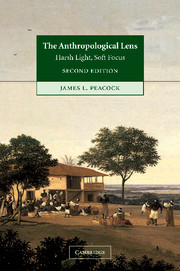1 - Substance
Published online by Cambridge University Press: 05 June 2012
Summary
Behold! I tell you a mystery!
1 Corinthians 15: 51–2What is life? What is the essence of human existence? Of what does experience consist?
Anthropology offers a variety of answers to these questions. This variety can be reduced to several major themes. Most prominent, perhaps, is this: Human life should be viewed as a whole – a configuration interwoven of many forces and aspects, all organized by culture. Yet the whole is dynamic, and the study of it fraught with debate.
IT'S REAL! CULTURE BEHELD
Surabaya – hot, crowded, impoverished – is a port city of Java, which is the most populous island of the world's fourth largest nation, Indonesia. In 1962, when I was doing fieldwork in Surabaya, an estimated 75,000 of its million inhabitants were beggars. Most people were undernourished, living on a third the food Westerners eat. Inflation had run away; prices were tripling monthly, and monthly wages were enough for only a few days of each month. The family with whom my wife and I were living, in a shantytown near the railroad tracks, were surviving but barely. Medicine was difficult to obtain; communications were uncertain; transportation, an adventure. The city was dominated by the Communist Party, which at the time was the second largest in Asia and was poised for revolution. Instability, hardships, and anxiety characterized this period titled by Indonesia's President Sukarno, “The Year of Living Dangerously.”
- Type
- Chapter
- Information
- The Anthropological LensHarsh Light, Soft Focus, pp. 1 - 62Publisher: Cambridge University PressPrint publication year: 2001



